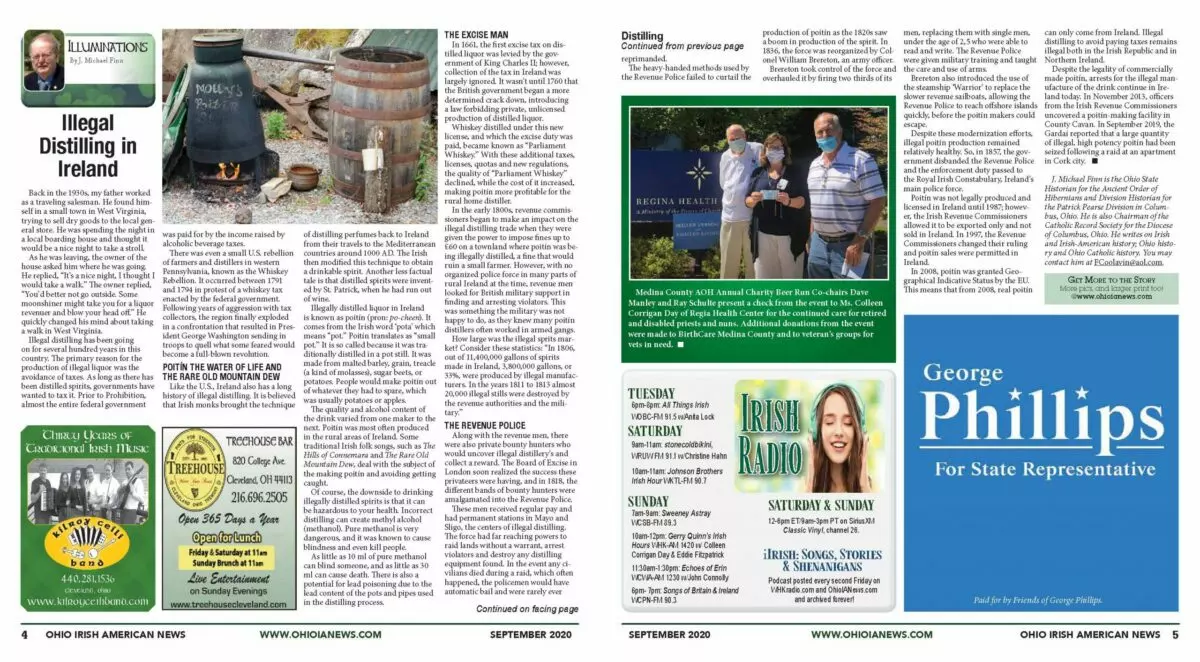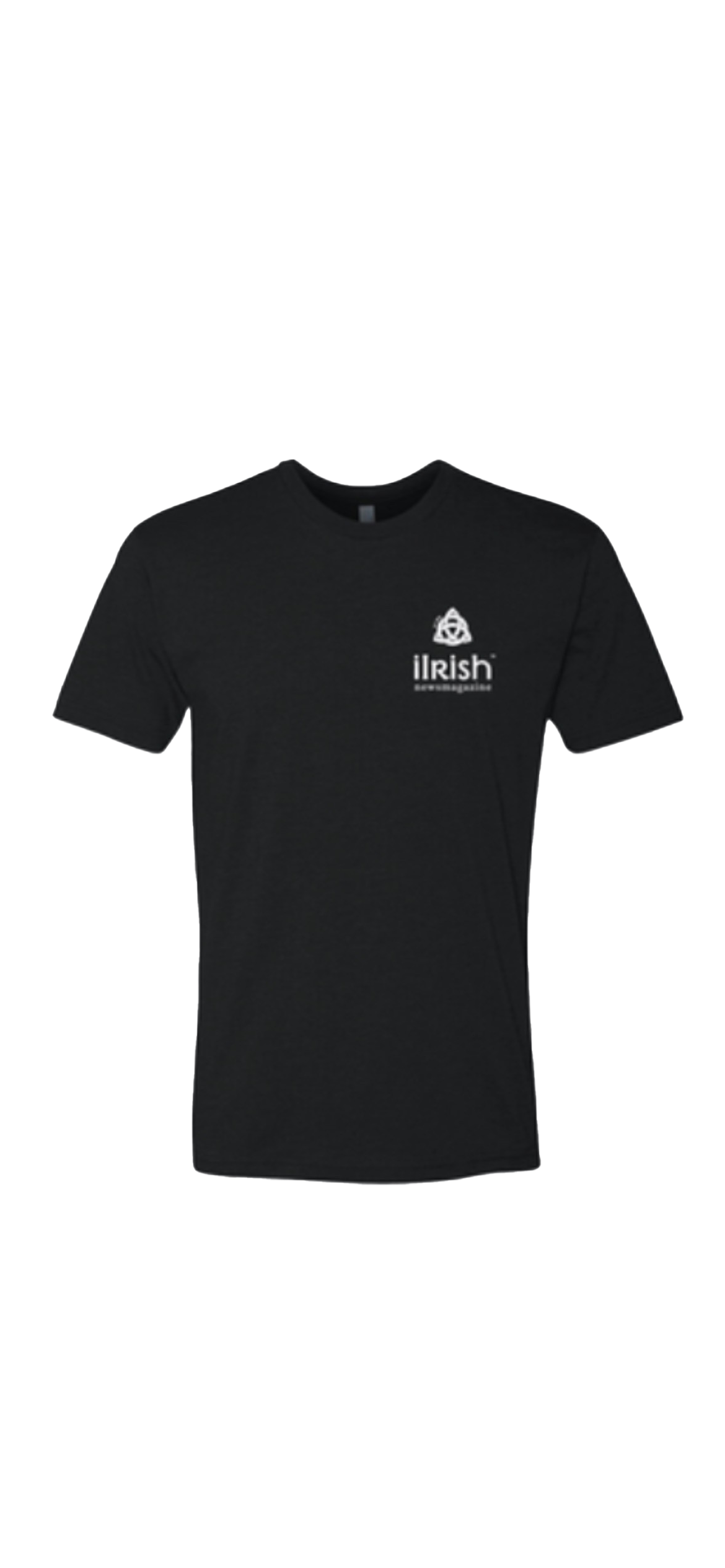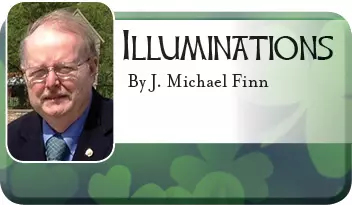
Illuminations: Illegal Distilling in Ireland
By: J. Michael Finn
Back in the 1930s, my father worked as a traveling salesman.
He found himself in a small town in West Virginia, trying to sell dry goods to the local general store. He was spending the night in a local boarding house and thought it would be a nice night to take a stroll.
As he was leaving, the owner of the house asked him where he was going. He replied, “It’s a nice night, I thought I would take a walk.” The owner replied, “You’d better not go outside. Some moonshiner might take you for a liquor revenuer and blow your head off.” He quickly changed his mind about taking a walk in West Virginia.
Illegal distilling has been going on for several hundred years in this country. The primary reason for the production of illegal liquor was the avoidance of taxes. As long as there has been distilled spirits, governments have wanted to tax it. Prior to Prohibition, almost the entire federal government was paid for by the income raised by alcoholic beverage taxes.
There was even a small U.S. rebellion of farmers and distillers in western Pennsylvania, known as the Whiskey Rebellion. It occurred between 1791 and 1794 in protest of a whiskey tax enacted by the federal government. Following years of aggression with tax collectors, the region finally exploded in a confrontation that resulted in President George Washington sending in troops to quell what some feared would become a full-blown revolution.
Poitín The Water of Life and The Rare Old Mountain Dew
Like the U.S., Ireland also has a long history of illegal distilling. It is believed that Irish monks brought the technique of distilling perfumes back to Ireland from their travels to the Mediterranean countries around 1000 AD. The Irish then modified this technique to obtain a drinkable spirit. Another less factual tale is that distilled spirits were invented by St. Patrick, when he had run out of wine.
Illegally distilled liquor in Ireland is known as poitín (pron: po-cheen). It comes from the Irish word ‘pota’ which means “pot.” Poitín translates as “small pot.” It is so called because it was traditionally distilled in a pot still. It was made from malted barley, grain, treacle (a kind of molasses), sugar beets, or potatoes. People would make poitín out of whatever they had to spare, which was usually potatoes or apples.
The quality and alcohol content of the drink varied from one maker to the next. Poitín was most often produced in the rural areas of Ireland. Some traditional Irish folk songs, such as The Hills of Connemara and The Rare Old Mountain Dew, deal with the subject of the making poitín and avoiding getting caught.
Of course, the downside to drinking illegally distilled spirits is that it can be hazardous to your health. Incorrect distilling can create methyl alcohol (methanol). Pure methanol is very dangerous, and it was known to cause blindness and even kill people.
As little as 10 ml of pure methanol can blind someone, and as little as 30 ml can cause death. There is also a potential for lead poisoning due to the lead content of the pots and pipes used in the distilling process.
The Excise Man
In 1661, the first excise tax on distilled liquor was levied by the government of King Charles II; however, collection of the tax in Ireland was largely ignored. It wasn’t until 1760 that the British government began a more determined crack down, introducing a law forbidding private, unlicensed production of distilled liquor.
Whiskey distilled under this new license, and which the excise duty was paid, became known as “Parliament Whiskey.” With these additional taxes, licenses, quotas and new regulations, the quality of “Parliament Whiskey” declined, while the cost of it increased, making poitín more profitable for the rural home distiller.
In the early 1800s, revenue commissioners began to make an impact on the illegal distilling trade when they were given the power to impose fines up to £60 on a townland where poitín was being illegally distilled, a fine that would ruin a small farmer. However, with no organized police force in many parts of rural Ireland at the time, revenue men looked for British military support in finding and arresting violators. This was something the military was not happy to do, as they knew many poitín distillers often worked in armed gangs.
How large was the illegal sprits market? Consider these statistics: “In 1806, out of 11,400,000 gallons of spirits made in Ireland, 3,800,000 gallons, or 33%, were produced by illegal manufacturers. In the years 1811 to 1813 almost 20,000 illegal stills were destroyed by the revenue authorities and the military.”
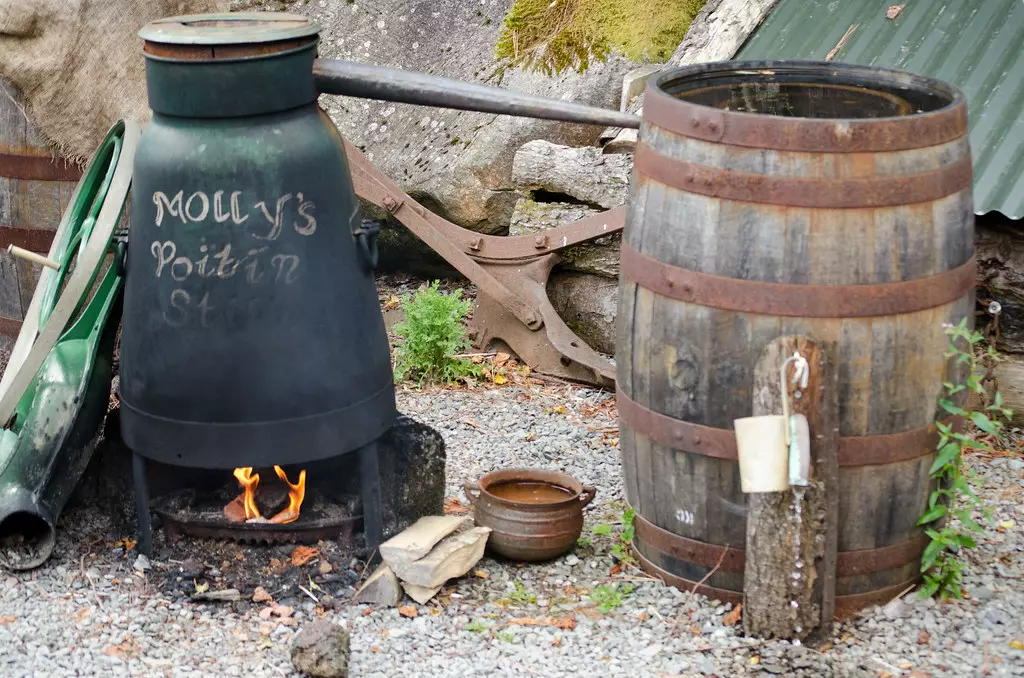
The Revenue Police
Along with the revenue men, there were also private bounty hunters who would uncover illegal distillery’s and collect a reward. The Board of Excise in London soon realized the success these privateers were having, and in 1818, the different bands of bounty hunters were amalgamated into the Revenue Police.
These men received regular pay and had permanent stations in Mayo and Sligo, the centers of illegal distilling. The force had far reaching powers to raid lands without a warrant, arrest violators and destroy any distilling equipment found. In the event any civilians died during a raid, which often happened, the policemen would have automatic bail and were rarely ever reprimanded.
The heavy-handed methods used by the Revenue Police failed to curtail the production of poitín as the 1820s saw a boom in production of the spirit. In 1836, the force was reorganized by Colonel William Brereton, an army officer.
Brereton took control of the force and overhauled it by firing two thirds of its men, replacing them with single men, under the age of 2,5 who were able to read and write. The Revenue Police were given military training and taught the care and use of arms.
Brereton also introduced the use of the steamship ‘Warrior’ to replace the slower revenue sailboats, allowing the Revenue Police to reach offshore islands quickly, before the poitín makers could escape.
Despite these modernization efforts, illegal poitín production remained relatively healthy. So, in 1857, the government disbanded the Revenue Police and the enforcement duty passed to the Royal Irish Constabulary, Ireland’s main police force.
Poitín was not legally produced and licensed in Ireland until 1987; however, the Irish Revenue Commissioners allowed it to be exported only and not sold in Ireland. In 1997, the Revenue Commissioners changed their ruling and poitín sales were permitted in Ireland.
In 2008, poitín was granted Geographical Indicative Status by the EU. This means that from 2008, real poitín can only come from Ireland. Illegal distilling to avoid paying taxes remains illegal both in the Irish Republic and in Northern Ireland.
Despite the legality of commercially made poitín, arrests for the illegal manufacture of the drink continue in Ireland today. In November 2013, officers from the Irish Revenue Commissioners uncovered a poitín-making facility in County Cavan. In September 2019, the Gardaí reported that a large quantity of illegal, high potency poitín had been seized following a raid at an apartment in Cork city.
*J. Michael Finn is the Ohio State Historian for the Ancient Order of Hibernians and Division Historian for the Patrick Pearse Division in Columbus, Ohio. He is also Chairman of the Catholic Record Society for the Diocese of Columbus, Ohio. He writes on Irish and Irish-American history; Ohio history and Ohio Catholic history. You may contact him at [email protected].
